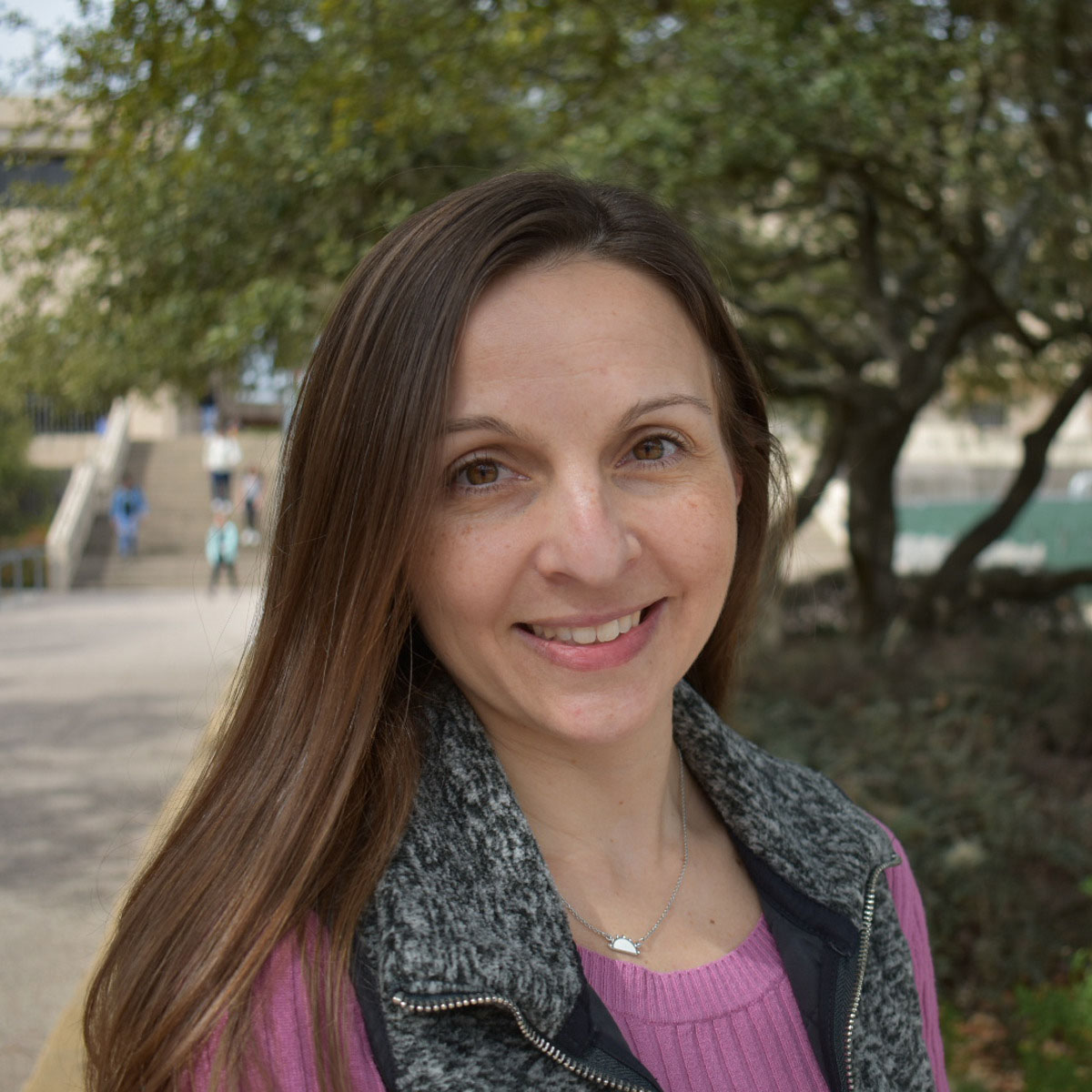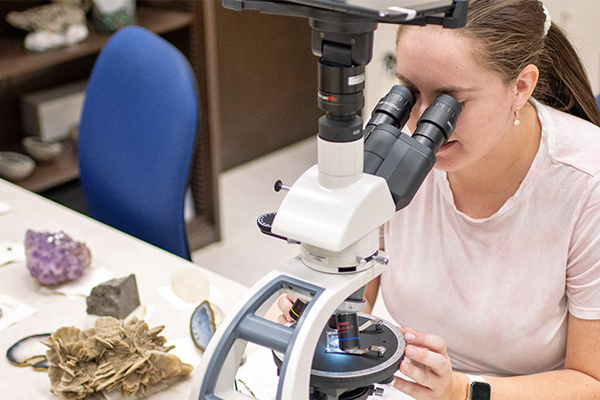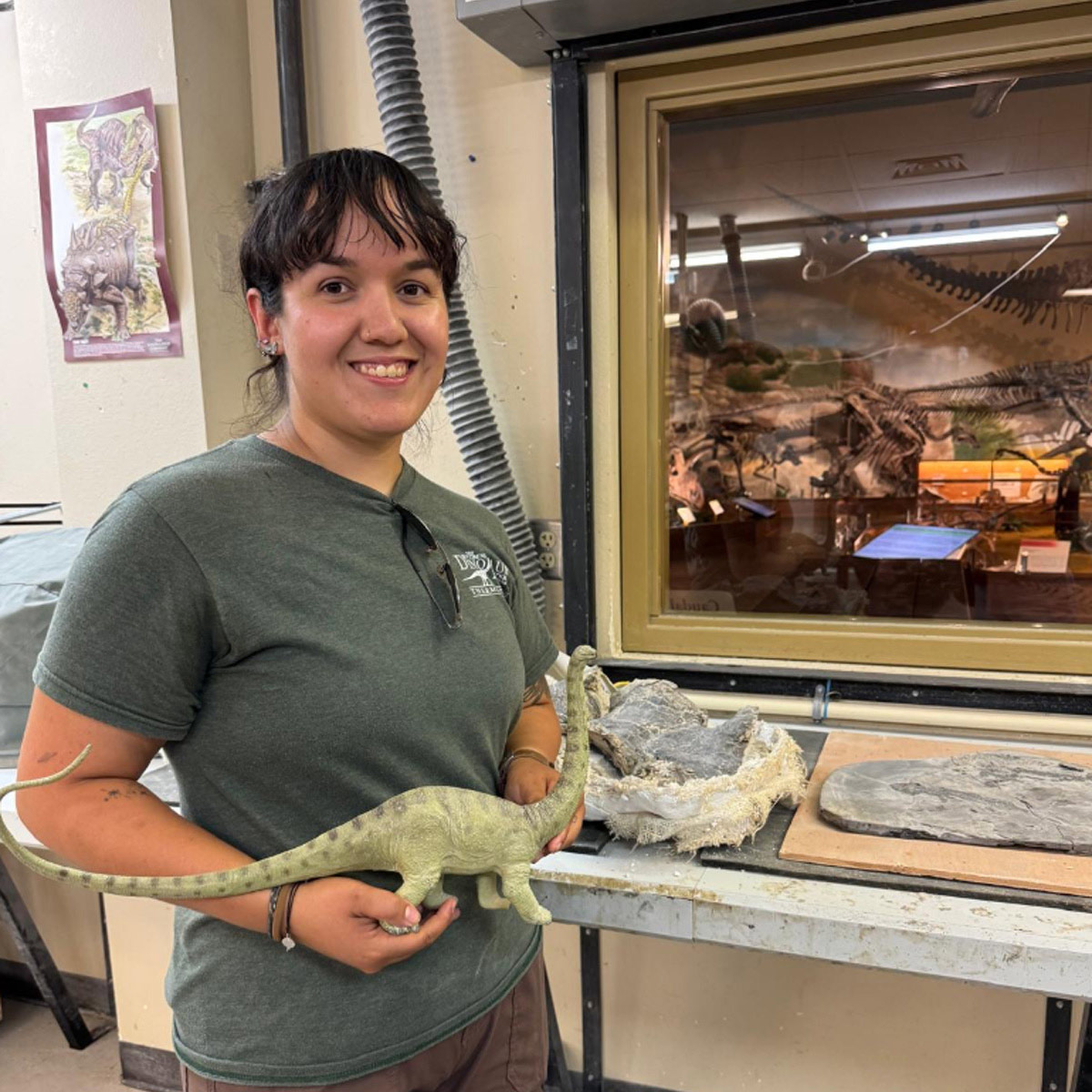Posted on May 4, 2020 by College of Sciences

Karen Mendiondo, Geology M.S. Student
By Lauren Moriarty
After raising a family and homeschooling her children for fifteen years, Karen decided to go back to school. "I've always loved learning and even though I enjoyed my years as a stay-at-home mom and homeschooling, I knew there was something more for me," Karen says. "Instead of just helping everyone else succeed, I wanted to pursue my interests as well." She earned her bachelor's degree in Geology from UTSA and is now a second-year student in the M.S. Geology program. "The wonder and understanding that comes from investigating something as amazing as what's in nature is unparalleled," she says. "I could sit for hours in the Mineralogy lab and look into the petrographic microscope."
Although balancing family life and a busy school schedule is particularly difficult during the COVID-19 pandemic, Karen is doing her best. "Due to the current situation, my youngest son and I now are typically found working side-by-side at home on laptops on school days," she explains. "He rarely needs my help, but as a former homeschooling parent I am confident that I could juggle helping him with my own studies and research. I still check in on what he is learning, how his assignments are going, and help him stay on track with larger projects and research reports. Since his evening extracurricular activities are cancelled until further notice, his evenings are completely unscheduled free time. But even though we are home together, I have studies and research which extend well into the evenings."
Karen's research focuses on gathering geophysical oceanographic data for the Gulf of Mexico. She utilizes the department's underwater SeaExplorer glider, specifically observations captured by the glider's Acoustic Doppler Current Profiler sensor, to estimate water current velocities. In the fall of 2018, Karen participated in a training program near Marseille, France, to learn how to operate the glider. Under the supervision of UTSA's Dr. Alberto Mestas-Nuñez, Karen is now learning how to process the raw water current observations made by the glider and how to calculate water velocity estimates using computer code. "Due to remote operations, our ocean studies team has temporarily postponed glider preparations and is focusing instead on oceanographic research which may be conducted remotely," Karen explains. "This allows me to dedicate my research time to my coding-based thesis research which incorporates previously-collected glider data. Therefore, I don't have to wait until lab operations resume or wait for a future glider mission to work on this research."
Once the team secures funding, they plan to deploy the glider to measure water currents in the Gulf of Mexico. "Water currents are important because they transport heat as well as sediments, contaminants, nutrients, and various suspended or dissolved particles in the water," Karen says. Her recent poster presentation, which validated the SeaExplorer's water current data from a test mission by using satellite data and models, won an award at the American Geophysical Union Fall 2019 Meeting. "Oceans are a key moderator of climate change, and water currents have a lot to do with this," says Karen. "For example, the majority of the extra anthropogenically-created heat in our earth system is absorbed by the ocean due to its high specific heat capacity, and that heat is then transported and dispersed throughout the global oceans."

Explore the EPS Department!
With research centers such as the Center for Advanced Measurement in Extreme Environments and the Institute for Water Research, Sustainability and Policy, students have access to diverse research opportunities to foster their education.
Recent EPS Spotlights
View More Spotlights



